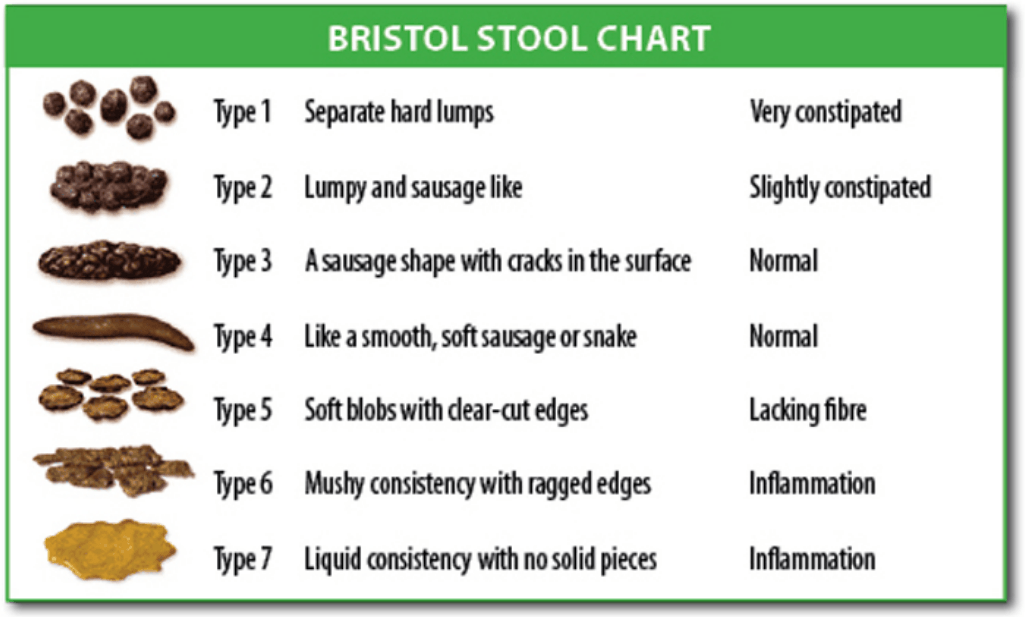As Hippocrates once said, “All disease begins in the gut”, and there is so much truth in that as evidenced in very concrete studies being carried out. Our gastrointestinal system is said to be like a second brain to our bodies because of the 100 million nerve endings that line our gastrointestinal tracts. According to Dr. Douglas Lord, any problems that arise in our gastrointestinal system might impact a great deal of many things such as our moods, memory, and even our immune system.
One way to find out whether our gastrointestinal system is functioning optimally is by simply looking at the color of our poop. Different colors can indicate whether our intestines and the overall digestive system is healthy. However, color itself is not the only indicator of digestive health, even the frequency, shape and odor of your poop are important things to look out for when determining whether your gut is healthy. Below, are the different colors and what they actually mean.
Poop Color:
1. Black stool
According to Mayo Clinic, if your stool is black in color, it could mean that there is a bleeding in the upper gastrointestinal tract, most probably in the stomach area. Possible dietary causes might be due to iron supplements, black licorice or even bismuth subsalicylate, an anti-diarrhea medicine known to cause black stools.
2. Green stool
Green stool is an indication that your food might be passing through your intestines too quickly and that the bile does not have enough time to be broken down. Possible causes of this could be too much leafy vegetables or ingesting too much green coloring.
3. Light or white colored stool
If your stool is white in color, it could mean that there is not enough bile produced in your stool and it might indicate that there is a blockage in your bile duct. This might be caused by anti-diarrhea medicine or other medications.
4. Yellow or greasy stool
Yellow and greasy stool and sometimes even foul-smelling can be indicators that there is too much fat in your diet. Or it could also mean that there is a malabsorption disorder which is caused by lactose intolerance, intestinal damage or even celiac disease – which means your body is hypersensitive to gluten, hence resulting in a difficulty to digest food.
5. RED STOOL
If your stool is red, do not panic. It could simply mean simple issues such as hemorrhoids (enlarged veins near the rectal area bursting) or anal fissures which are caused by the tear of the anal canal linings. These issues can be easily solved through over-the-counter medications. But just to make sure, it is best to check with your physician.
Poop Shape:
Another great way to find out whether your digestive health is optimal is through understanding the Bristol Stool Chart.
Problems such as constipation can be looked out for if you come across stool shapes in the form of Type 1 and Type 2 where the stool is lumpy and hard or sausage like respectively. To deal with constipation, you might want to engage in exercise regularly, ensure that you’re drinking enough fluids and also making sure that you’re ingesting enough vegetables, fruits and fiber.
Your digestive health is normal if the shape and texture of your stool are like Type 3 and 4.
For Type 5, this would be an ideal shape for people who has a bowel movement 2-3 times daily, especially after major meals.
For Type 6 when the stool is of mushy consistency, it is considered a borderline normal situation as such kinds of stool could be an indicator of a hyperactive colon or the body is in a stressed state, hence releasing more water and increasing blood pressure. Too much spices in your diet and possibly consuming too much water with high mineral content can cause your stool to be shaped as such.
Lastly, Type 7 is of course, diarrhea. Constipation in the large intestine can cause the liquid contents from the small intestine to go nowhere else but down to the rectum while only a small amount of water is absorbed. Hence, people who experience diarrhea might also experience dehydration.
Poop Odor
Poop odor can also tell a lot about your intestinal health. You should know that stinky poop odors are normal and that you’ll hardly get poop that doesn’t smell. But having unbearably smelly stool frequently could mean an underlying problem with your intestinal health and stool usually come runny and soft. Causes of such stool could be malabsorption, an infection in the intestines, or even allergies. If your stool is always foul-smelling, it’s best to get it checked with a physician.
Poop Frequency
According to Doctor Mercola, having bowel movements 3 times a day or 3 times per week is considered normal. Constipation occurs if there is no bowel movement for 3 straight days, of which Doctor Mercola has instructed people who suffer from constipation to get into the squat position which can help. And of course, more than 3 times a day would be considered as diarrhea.













































